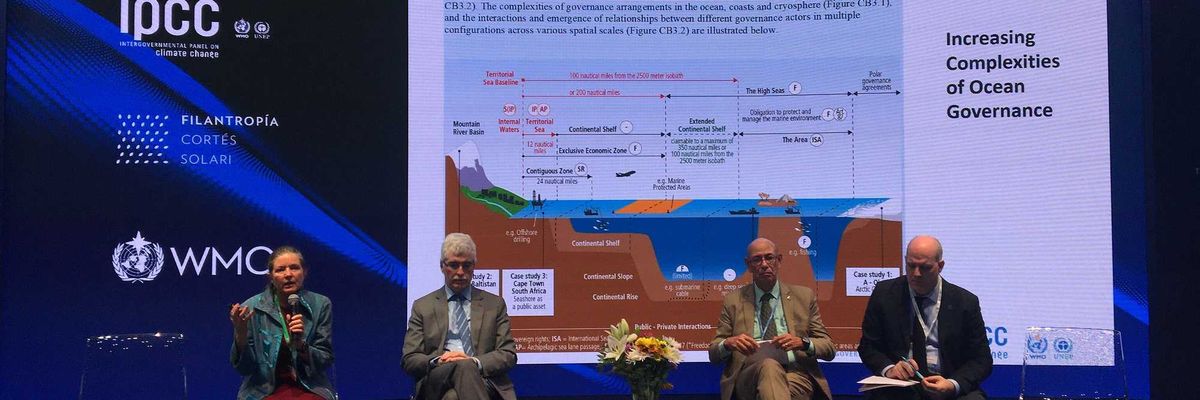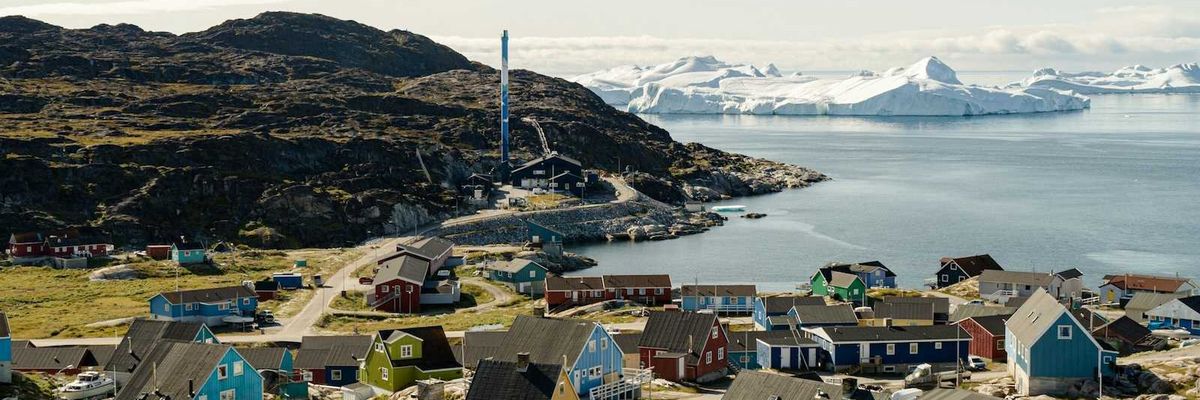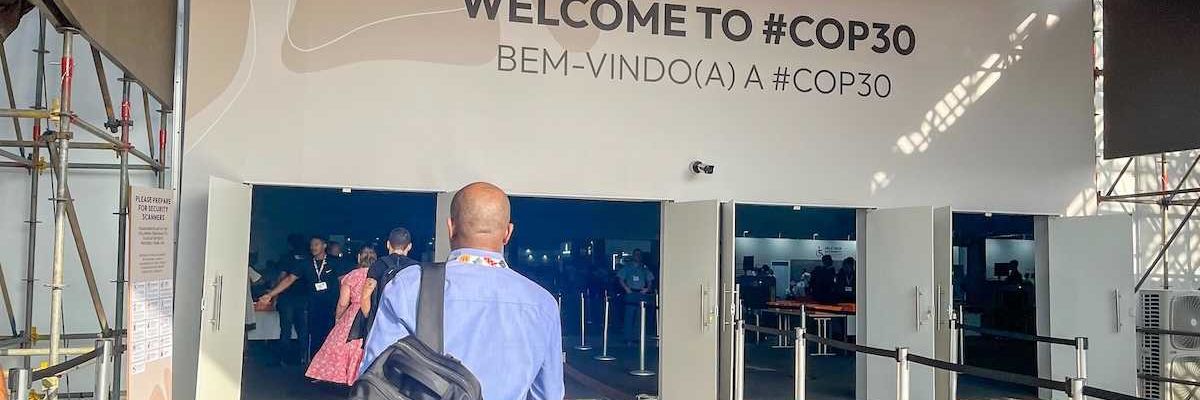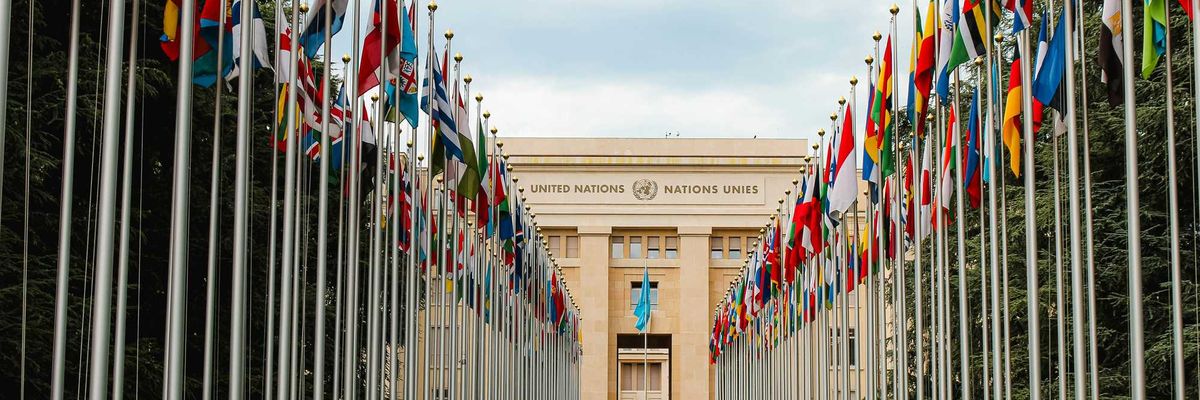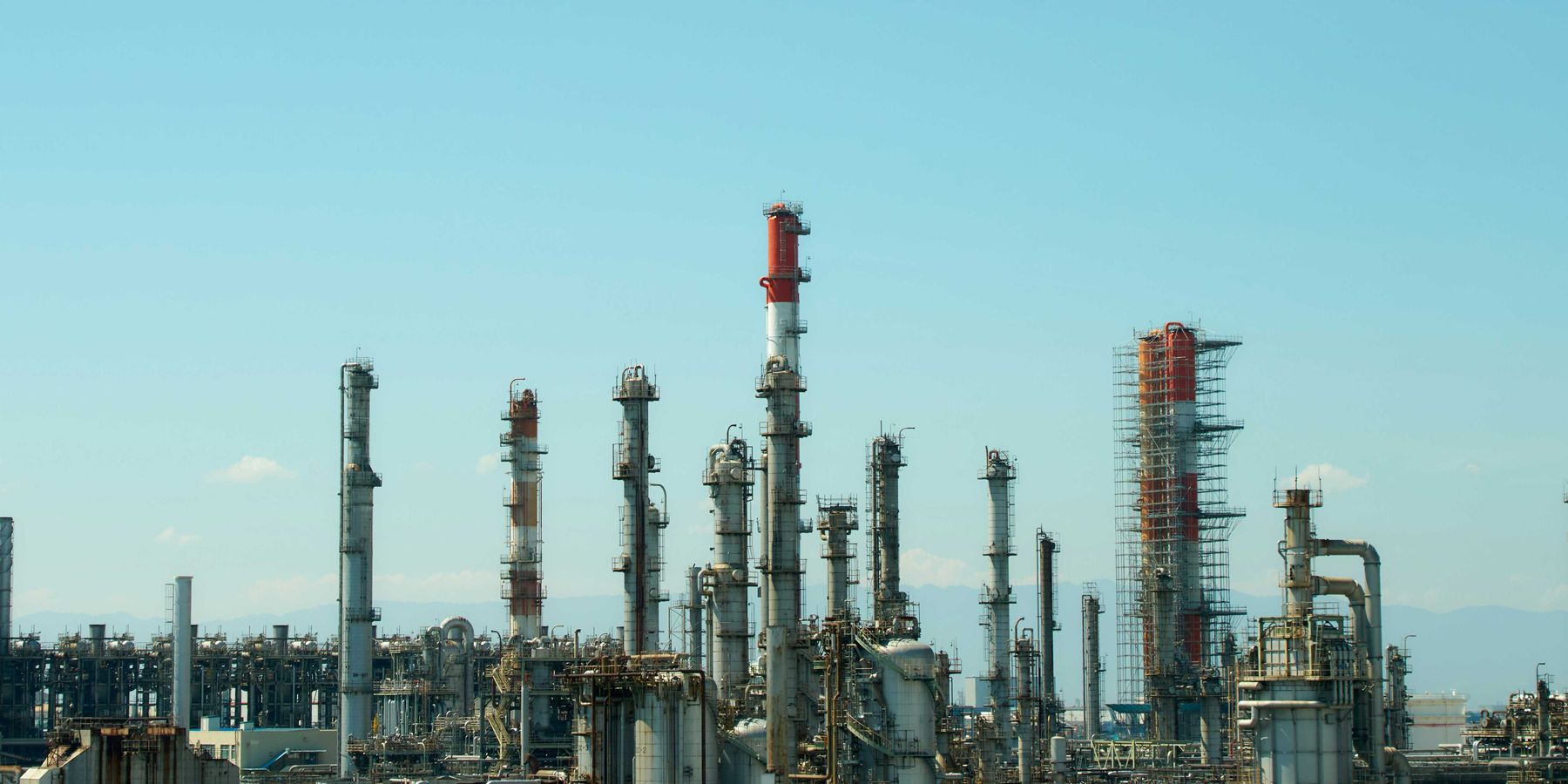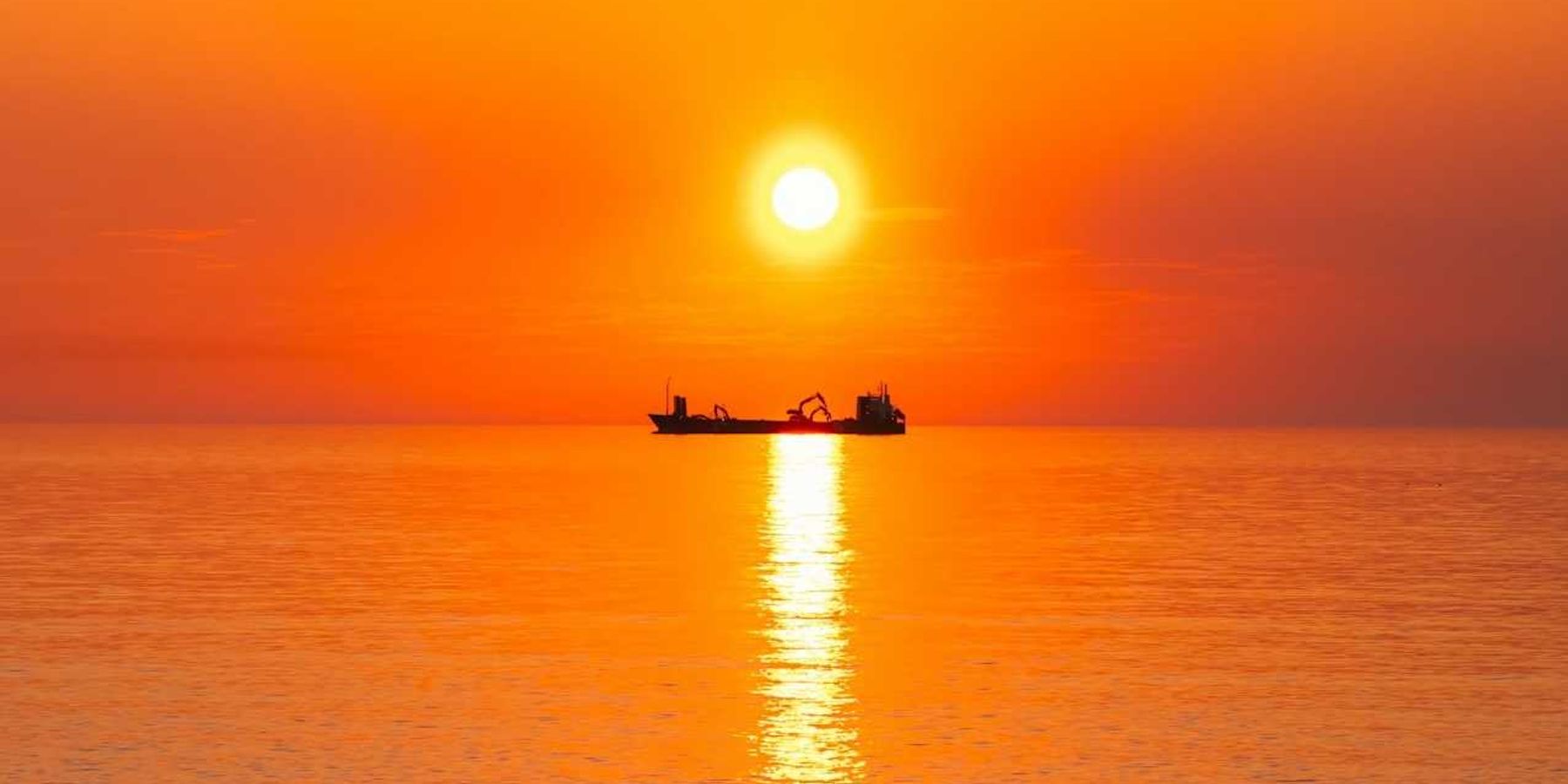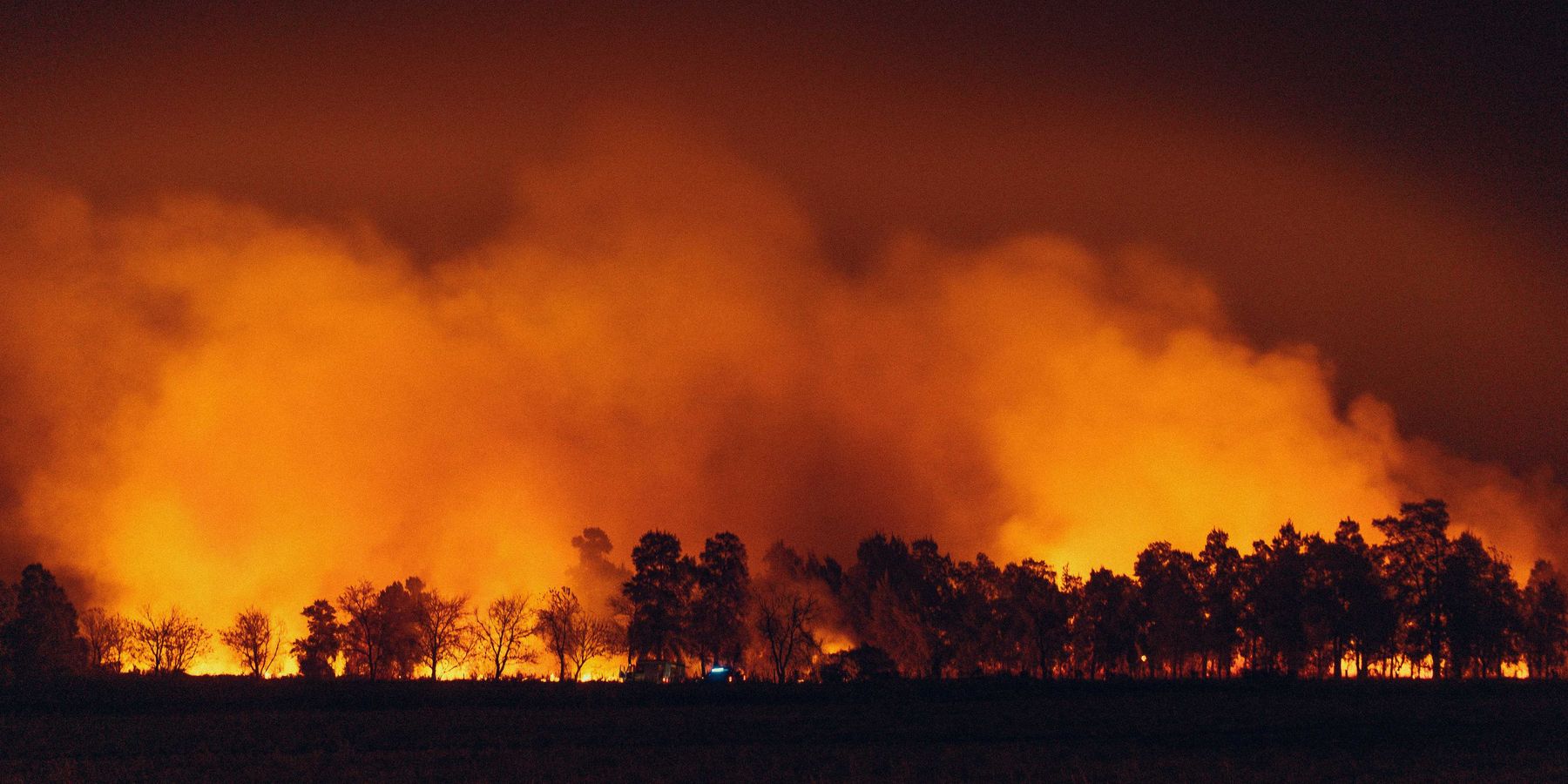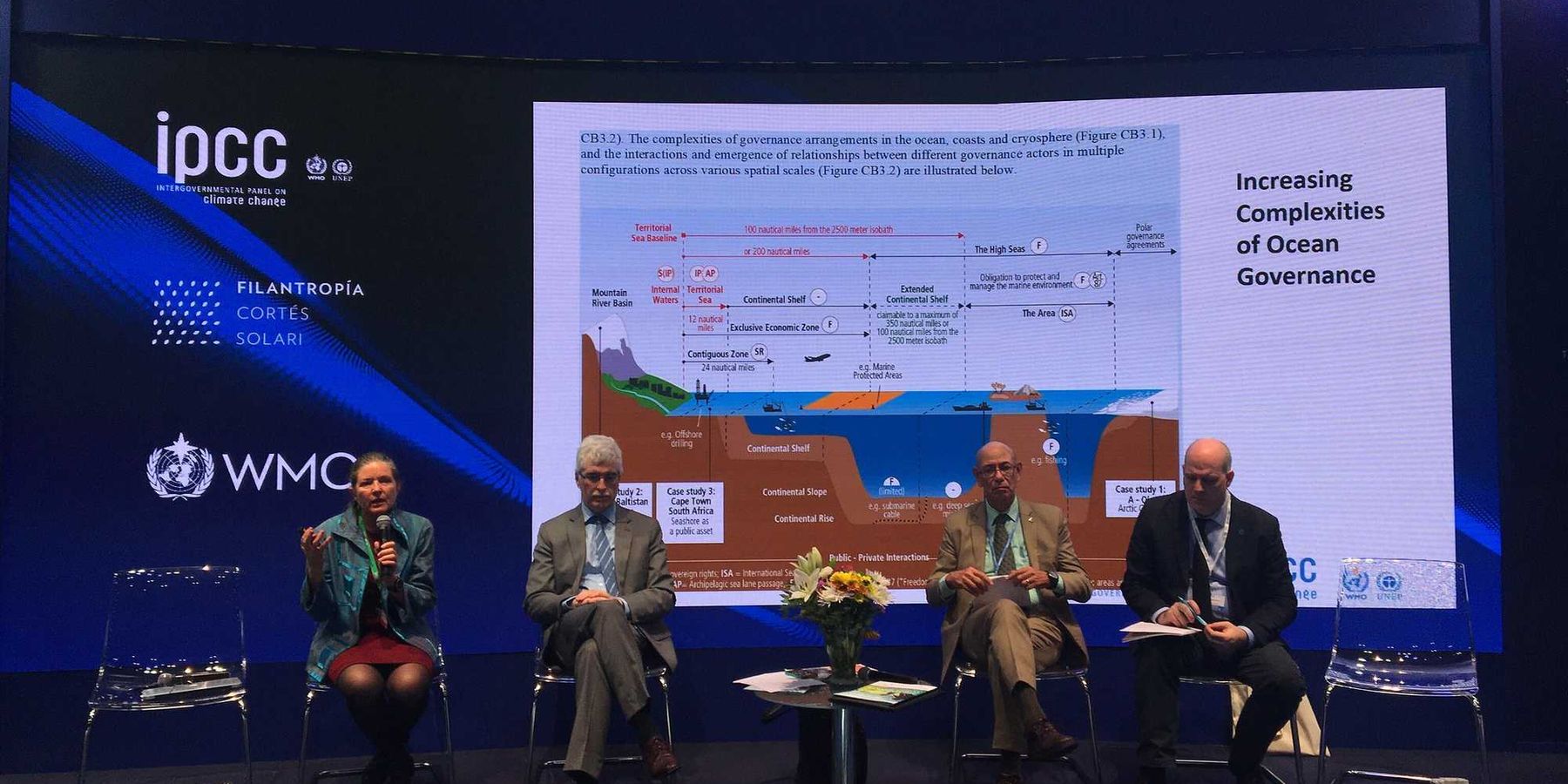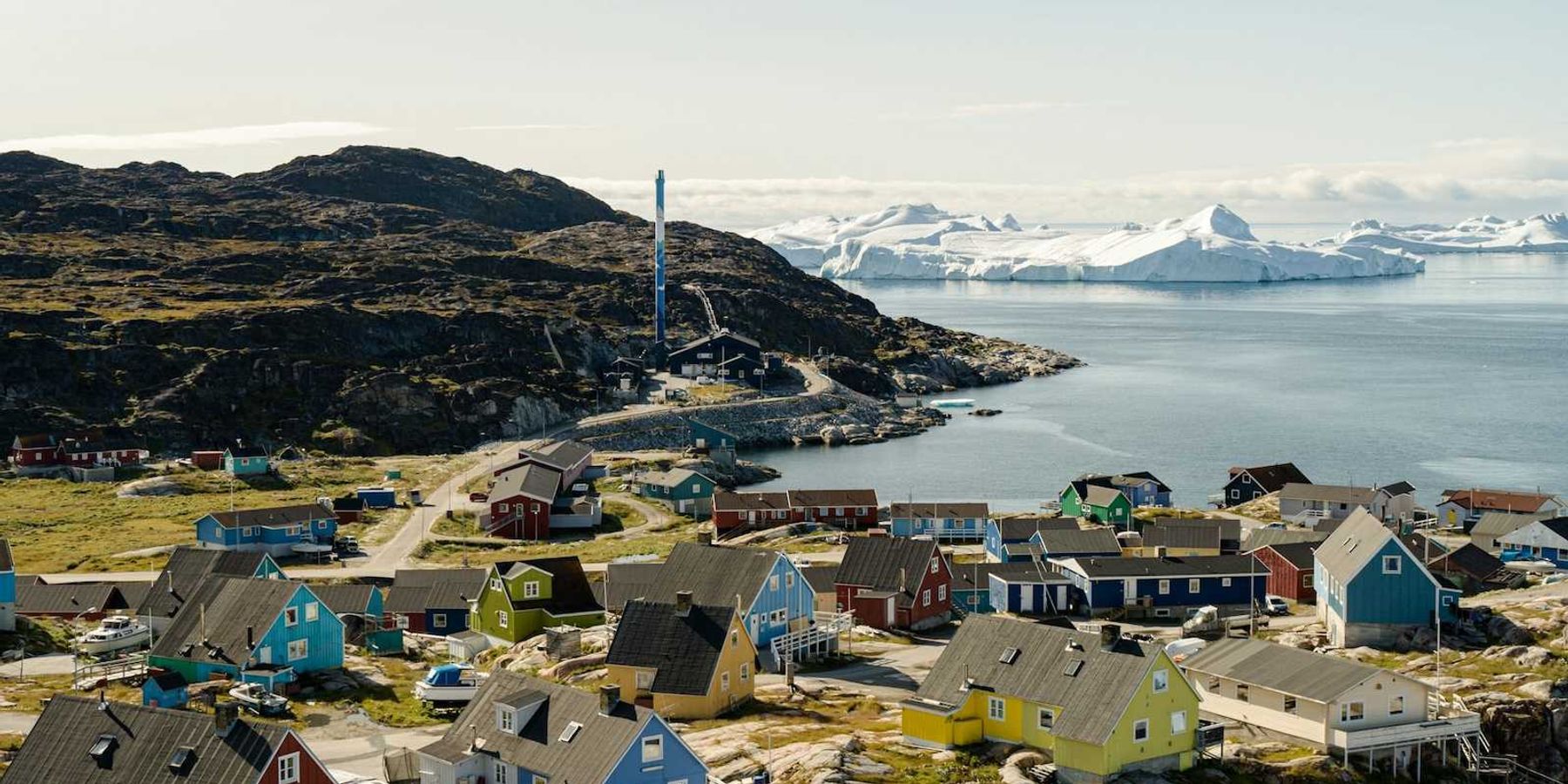gamingscience
Now even climate-change believers count as ‘deniers.'
Even if an opinion is wrong, debating it will teach more people what is right. And if the opinion is right, it offers an opportunity to exchange error for truth. Instead, we’re left with just one “right” way of thinking.
Al Gore recently had a telling altercation with a journalist. The Spectator’s Ross Clark wanted to ask him about Miami sea-level rises suggested in the new film, “An Inconvenient Sequel.” The reporter started to explain that he had consulted Florida International University sea-level-rise expert Shimon Wdowinski. Gore’s response: “Never heard of him — is he a denier?” Then he asked the journalist, “Are you a denier?”
When Clark responded that he was sure climate change is a problem but didn’t know how big, Gore declared, “You are a denier.”
I was recently on the receiving end of a similar rebuff from Chile’s environment minister. I’d written an op-ed for a Chilean newspaper that, among other things, quoted UN findings on how little the Paris climate treaty would achieve and argued that vast investment in green energy research and development is a better policy. Marcelo Mena proclaimed, “There is no room for your climate-denying rhetoric in Chile.”
Something odd — and dangerous — is happening when even people who accept the reality of man-made climate change are labeled “deniers.” The unwillingness to discuss which policies work best means we end up with worse choices.
Consider the case of Roger Pielke, Jr, a political scientist who worked extensively on climate change. He believes that climate change is real, human emissions of greenhouse gases justify action and there should be a carbon tax.
But he drew the ire of climate campaigners because his research has shown that the increasing costs from hurricane damage is not caused by storms made more intense by climate-change but by more and pricier property built in vulnerable areas. He took issue with the UN’s influential International Panel for Climate Change over a chart in its 2007 report that seemed to imply causation when there was only circumstantial evidence.
Pielke was proven right, and the IPCC’s subsequent outputs mostly accepted his arguments. Yet, he was the target of a years-long campaign, including a massive but baseless takedown that later turned out to have been coordinated by a climate-campaigning think tank funded by a green billionaire, alongside an investigation launched by a congressman.
Pielke left climate change for other fields where “no one is trying to get me fired.” And sidelining him has made it easier for climate-campaigners to use hurricanes Harvey, Irma and Maria to argue for carbon-cut policies, even though these will do very little to prevent future hurricane damage.
Pielke finds that we should make relatively cheap investments to reduce vulnerability, like limiting floodplain construction and increasing porous surfaces. Ignoring this means more harm.
“Ten years ago we did ‘An Inconvenient Truth.’ Its predictions...
Leaving out dissention echoes the worst of the leaked “ClimateGate” e-mails. In 2004, the head of a leading climate-research organization wrote about two inconvenient papers: “Kevin and I will keep them out [of the IPCC report] somehow — even if we have to redefine what the peer-review literature is!”
Journalists also ensure debate “purity.” In Scientific American, climate writer and former CNN producer Peter Dykstra stated baldly that “climate denial extends beyond rejecting climate science,” comparing policy questioners to Holocaust deniers and dismissing my own decade of advocacy for a green energy R&D; fund as “minimization.”
This intolerance for discussion is alarming. Believe in climate change but wonder how bad it will be? You’re a “denier,” says Gore. Believe, but argue that today’s policies aren’t the best response? You’re a denier, says Chile’s environment minister. Believe, but point out problematic findings or media reporting? There’s no room for you, say the self-appointed gatekeepers of debate.
The expanding definition of “denial” is an attempt to ensure that public and policy-makers hear from an ever-smaller clique. John Stuart Mill calls this “the peculiar evil of silencing the expression of an opinion.”
But even if an opinion is wrong, debating it will teach more people what is right. And if the opinion is right, it offers an opportunity to exchange error for truth. Instead, we’re left with just one “right” way of thinking.
With dissidence on the Paris Treaty not allowed, we are on track to lose $1 trillion to $2 trillion annually to achieve what the United Nations finds will be 1 percent of the carbon cuts needed to keep temperature rises under 2°C.
That’s not the right way to solve climate change. Saying so denies nothing but economic illiteracy.
Bjorn Lomborg is director of the Copenhagen Consensus Center.
Five charts that show Tony Abbott is the one who has lost sight of the science.
Tony Abbott's speech to the Global Warming Policy Foundation provides a mix of partial truths that are designed to create a plausible whole.
Tony Abbott's speech to the Global Warming Policy Foundation provides a mix of partial truths that are designed to create a plausible whole.
As one leading climate change scientist noted in private on Tuesday, "most statements have the classic element of truth but once confronted by the balance of evidence the statements are true but irrelevant, or true to a point and then misleading - classic sceptics' stuff".
Still, there are enough clangers to suggest Abbott either can't read a chart or is tapping some data source that has somehow escaped the attention of the many global climate monitoring bodies from NASA to the UK Met Office or Australia's Bureau of Meteorology.
Here are some of Abbott's standout claims, and the charts that counter them.
'Only 0.3 degrees'
"Temperatures in Australia have only increased by 0.3 degrees over the past century, not the 1 degree usually claimed," is one of Abbott's statements.
According to the bureau and CSIRO's State of the Climate 2016, here's what we're seeing in Australia:
The only pockets of Australia to have warmed less than 0.5 degrees since 1910 are located in a couple of places in NSW (though not Manly, as it happens) and Western Australia.
'Photos show no sealevel rise'
Staying local, Abbott has this to say about sea-level rise: "More than 100 years of photography at Manly Beach in my electorate does not suggest that sea levels have risen despite frequent reports from climate alarmists that this is imminent."
Consider, first, the lean likelihood of avid snappers catching the same point of the tide at the same place over the years.
Imagine, too, the future lawsuits when owners of coastal developments that have been washed away submit to the court grainy, faded photographs explaining they had no idea what they were buying into.
Coastal sea-level rise can be quirky, but for those wanting to project future development, Geoscience Australia provides projections, even for Manly.
In the meantime, this readily available information from CSIRO showing global sea-level rise is accelerating:
Abbott might want to acquaint himself with the reasons for that rise in sea levels, including the well-understood fact 93 per cent of the extra heat being trapped by extra greenhouse gases ends up in the ocean.
A warmer ocean, not surprisingly expands. The melting ice caps, glaciers and sea ice absorb about 2 per cent of that extra heat and most of that ice melt ends up in the ocean, lifting their levels.
While just 2.3 per cent of the extra warming ends up in the atmosphere and 2.1 per cent in the land, that happens to be where most of the temperature readings are made and where our own lives are lived out.
Blame the sun
So here's Abbott's interpretation of what's been going on, temperature wise: "Certainly, no big change has accompanied the increase in atmospheric carbon dioxide concentration over the past century from roughly 300 to roughly 400 parts per million or from 0.03 to 0.04 per cent."
And if anything is going on, let's not blame it all on CO2, he would have us believe: "Evidence suggests that other factors such as sun spot cycles and oscillations in the Earth's orbit are at least as important for climate change as this trace gas."
Blaming the sun, as it happens, is one of the top two climate myths raised by deniers, according to the Skeptical Science website, and one of the first ruled out.
The following chart from that website helps to knock a few of Abbott's misleading interpretations on the head:
Solar radiation has in fact been on a cooling trend for the past three decades, and yet temperatures have continued to climb. And they are clearly much closer to 1 degree higher over the past century than 0.3 degrees.
This chart, also helps to put this claim by Abbott into perspective: "Even the high priests of climate change now seem to concede that there was a pause in warming between the 1990s and 2014."
News Corp commentators such as Andrew Bolt regularly play up that "no warming" has occurred in the past 10, 15, 18 or so years.
By taking the top of the record-high El Nino year in 1998 it is possible to see warming slowed. But note Abbott conveniently ends in 2014, forgetting to include the fact that year - a record for warming - was then beaten by 2015 and 2016.
While examining a single month rarely tells us about longer-term trends, September surprisingly set global records according to preliminary data even without an El Nino influence.
'More good than harm'
Abbott would like to have it both ways. If there is warming, and if we were to be driving it, perhaps it's not a bad thing after all.
"At least so far, it's climate change policy that's doing harm; climate change itself is probably doing good; or at least, more good than harm," he said in his speech.
Australians happen to live in a nation with a highly variable climate, especially for rain.
There are ample signs of recent heatwaves, including in this spring, to have people worried with reason about the threat of worse bushfires, among other challenges.
Recent research pointing to Sydney and Melbourne likely to have 50-degree days in coming summers was dismissed as "groupthink" by Abbott on Fairfax Media's 2GB.
As the bureau and CSIRO note in their report, though, Australia has been reporting a big increase in the number of extreme heat events, with all the stresses on the health of humans (and other creatures) that they bring:
As the report notes, extreme days are defined as those above the 99th percentile of each month from the years 1910 to 2015.
"In 2013 there were 28 days over this threshold," the report said. "This compares to the period prior to 1950 when more than half the years had no extreme days."
Abbott's speech made little of the fact it was during his two-year stint as prime minister that Australia signed up to reduce its greenhouse gas emissions 26-28 per cent by 2030 compared with 2005 levels.
The pledge "was a compromise based on the advice that we could achieve it largely through efficiencies, without additional environmental imposts, using the highly successful emissions reduction fund; because, as I said at the time, the last thing we want to do is strengthen the environment (but) damage our economy".
What's 'Herculean' in Chinese?
Quite apart from the ERF being "highly successful" (see here or here), Abbott goes on to say this: "Even if reducing emissions really is necessary to save the planet, our effort, however Herculean, is barely better than futile; because Australia's total annual emissions are exceeded by just the annual increase in China's."
Well, it turns out China's emissions have actually been flat for several years.
Whether the recent plateau holds or starts to climb again remains to be seen. Concern about urban pollution and the massive construction that has already filled many of the major cities with ample subway lines, highways and tower blocks suggest returning to the run-up of emissions during the 2000-2010 is unlikely.
Perhaps the following chart from Climate Change News, though, is a better pointer to the trends in China, the world's largest carbon emitter:
It shows annual growth of energy consumption. Fossil fuel use has a diminishing share of the extra energy needed to drive what will soon be the world's largest economy.
Giving the cost of solar and wind energy continues to decline at a rapid rate - while fossil fuel extraction is if anything getting more costly as easy to access resources disappear - it's a fair bet if China's energy demand does pick up, coal and oil aren't likely to provide the lion's share of extra supply.
Tony Abbott dares us to reject evidence on climate, but reveals a coward.
The former Australian prime minister’s misleading speech to a London thinktank was full of climate denial mythology.
Tony Abbott titled his London speech on climate change “Daring to Doubt” – a challenge, if you will, to reject mountains of evidence and instead lick your fingers and shove them into the plug socket of denial.
Go on, I dare you.
Throughout his speech, the former Australian prime minister urged listeners to think that dismissing decades of research backed by the world’s leading scientific institutions required bravery and fortitude, rather than other less celebrated human attributes.
But what would constitute bravery for a conservative politician like Abbott? Changing your mind when the evidence tells you you’re dead wrong, or saying what you’ve always said, using the logical fallacies that you’ve always used? One step is brave, the other is cowardly.
Abbott was giving the Global Warming Policy Foundation’s annual lecture – an “honour” previously bestowed on his spiritual and political mentors John Howard and Cardinal George Pell.
Nobody should be surprised that what we got was an absolute crap speech from a man who confessed he still thinks climate science is “absolute crap”.
Abbott went for the whole canon of tired climate science denial talking points – carbon dioxide is just food for plants, the climate has always changed, it’s the sun – in what constituted a warmed-up meal of misinformation with a side order of supercilious gravy.
Several leading Australian climate scientists have hit back. How tired they must get of debunking this stuff.
Abbott’s speech was also chock-full of internal contradictions.
He suggested a conspiracy to tamper with temperature readings, but admitted the globe was warming. He described carbon dioxide as a “trace gas” and dismissed its role in warming, but elsewhere thought warming (which might not be happening) would be good. And the “trace gas” is insignificant, but not when it comes to its ability to “green the planet” and help plants grow.
Professor Steve Sherwood, deputy director of the University of New South Wales Climate Change Research Centre, read the speech and said it was “the usual mix of misdirection, falsehoods and tirades against ‘brigades’ who supposedly say this and that but are never clearly identified”.
Abbott told the thinktank – which had denied requests from seasoned climate reporters to attend – that past climate changes that occurred millions of years ago showed there was nothing to worry about now.
“Abbott is trying to hide the fact that it is the scientists themselves – who know more about past climate changes than he does – who are sounding the alarm,” said Sherwood.
The former prime minister confined his scientific missteps to seven or eight paragraphs in the middle of his speech.
Professor Mark Howden, director of the ANU Climate Change Institute, said Abbott’s claim that other factors, such as sunspots cycles or wobbles in the Earth’s orbit could be just as important as carbon dioxide, was simply false.
“The evidence that our climate is changing due to human activity is overwhelming,” said Howden. “2016 was globally the hottest year on record, surpassing the 2015 record, surpassing the 2014 record. There is 99.999% certainty that humans are driving the observed temperature rises via greenhouse gas emissions.”
Abbott’s claim that “no big change has accompanied the increase in carbon dioxide concentration” was “problematic”, said Howden, given “research shows that the world has already warmed by approximately 1C since pre-industrial times”.
“We are already experiencing changed patterns of rainfall, more and more days with extreme temperatures, increasingly intense natural disasters and rising sea levels, impacting on almost all facets of life in Australia.”
Professor Andrew Pitman, director of the Australian Research Council’s Centre of Excellence for Climate Extremes, said while it was true that CO2 is essential to life, “life also requires many trace elements that at higher concentrations are toxic”.
“It is a myth to imply that because CO2 is essential to life, more of it is good.”
Abbott also deployed another favourite talking point from climate science misinformers – that warming (which, remember, he thinks might not be happening) will cut the number of people dying of cold.
Pitman said this argument, too, was misleading, saying: “It is true that in rich countries which tend to be in the mid to higher latitudes, some warming might help reduce deaths from cold. In the lower latitude countries – the subtropics and tropics – people rarely die of cold. In contrast they die of heat and lack of clean water.
“So, countries responsible for global warming might gain a minor benefit from warming while those least responsible will wear the consequences.”
Dr Liz Hanna, an expert on the impacts of climate change on human health, said human-caused warming was already implicated in the deaths of many thousands.
“In 2003, 70,000 people died in western Europe, and in 2010 a further 55,000 people died in Russia and eastern Europe. These figures far exceed deaths from cold snaps. The decade 2001-2010 saw a 2,300% increase in heat deaths above the previous decade. Mr Abbott’s assertions don’t tell the whole story, as they’re based on what has happened in the past rather than what is projected to happen in future. While more people die from cold than heat in Melbourne at the moment, this will reverse as more summer days reach the high 40s.”
Away from his errors on the evidence, Abbott tried to characterise climate science and environmentalism as being hamstrung by a religious-type fervour that gets in the way of “common sense”. Abbott said:
Environmentalism has managed to combine a post-socialist instinct for big government with a post-Christian nostalgia for making sacrifices in a good cause. Primitive people once killed goats to appease the volcano gods. We’re more sophisticated now but are still sacrificing our industries and our living standards to the climate gods to little more effect.
Beware the pronouncement, ‘the science is settled’. It’s the spirit of the Inquisition, the thought-police down the ages. Almost as bad is the claim that ‘99% of scientists believe’ as if scientific truth is determined by votes rather than facts.
As a Roman Catholic libertarian free market ideologue, Abbott is, presumably, immune to such group think.
Climate scientist Ben Henley, of the University of Melbourne, also spots Abbott’s facile argument. In an email he told me:
“By implication, Abbott superstitiously questions the foundations of science, and in doing so, he questions the same scientific method which discovered wifi and penicillin, and proved the Earth was not flat.
“Abbott presents an absurdly and intentionally distorted viewpoint, reminiscent of a conspiracy theorist.”
Abbott’s attitude to climate change seems to rest on a Boy’s Own “who dares wins” approach to policy that’s neither brave or daring. It’s stupid.
Climate change 'probably doing good', says former Australian PM Abbott.
Former Australian prime minister likens treatment of climate sceptics to the Spanish Inquisition and says the government lost seats by not campaigning on energy prices.
Former Australian prime minister Tony Abbott’s climate scepticism surged back into the public sphere during a speech in London on Monday evening in which said climate change was “probably doing good”.
Abbott delivered the annual lecture to the London-based Global Warming Policy Foundation (GWPF), a climate sceptic thinktank. Climate Home was blocked from attending the event.
Abbott told the group the ostracisation of those who do not accept climate science was “the spirit of the Inquisition, the thought-police down the ages”. He also reprised his 2009 assertion that the “so-called settled science of climate change” was “absolute crap”.
When he was prime minister, Abbott said he took the issue of climate change “very seriously”. But since he was deposed as prime minister by his Liberal party colleague and bête noire Malcolm Turnbull in 2015, Abbott has returned to many hardline views he had tempered as leader.
He told the GWPF Australia needed “evidence based policy rather than policy based evidence” and took aim at a 2013 study that showed that 97% of scientists agree humans are driving climate change, “as if scientific truth is determined by votes rather than facts”.
Climate change and energy policy has been a divisive issue in Australia for over a decade, with Abbott consistently at the centre of the division. From the backbench, Abbott has pushed the Turnbull government to reject policies that would favour renewable energy.
In his speech, Abbott blamed Turnbull’s failure to campaign on energy prices during 2016 for the narrowing of the government’s majority at that year’s election.
“After a net gain of 25 seats at the previous two elections, when we had campaigned on power prices, we had a net loss of 14 when we didn’t. And subsequent events have made the politics of power once more the central battleground between and within the two main parties,” Abbott said.
On Monday, energy minister Josh Frydenberg indicated the government does not intend to follow its chief scientist’s recommendation that it should implement a clean energy target. Abbott welcomed that news in London, calling it “belated”.
“Even if reducing emissions really is necessary to save the planet, our effort, however Herculean, is barely-better-than-futile; because Australia’s total annual emissions are exceeded by just the annual increase in China’s,” Abbott said.
Chinese emissions have been flat for the past three years. Recent research from the Australia Institute found Australia was the only wealthy nation still breaking its own energy emissions records.
The GWPF is chaired by Nigel Lawson, who served as Margaret Thatcher’s treasurer in the 1980s. Lawson has been an outspoken critic of climate science and recently incorrectly told the BBC the global temperature had slightly declined in the past decade. The BBC was heavily criticised for leaving his assertions unchallenged.
John Hewson, who led the Liberal party from 1990 to 1994, said Abbott’s speech to Lawson’s group “sees him in like-minded, if disturbingly deluded, company”.
“Tony Abbott has had a long history of playing short-term politics, for his own political benefit, with the existential threat posed by a rapidly changing climate,” said Hewson.
“Abbott was effective in opposition – a man of nope rather than hope. His basic thrust is that if you can’t understand it, don’t believe it, or accept it. When it comes to climate, and the magnitude and urgency of the challenge, Abbott is prepared to deny the undeniable, and to ignore the risks and costs if left to future generations. History will undoubtedly judge Abbott and Howard, and their small band of deniers harshly. When they could have acted on climate and emissions they failed as leaders, miserably.”
Wrong & irresponsible. Climate change is real & man-made. Not only do we owe it to our kids to act, clean growth is trillion $ opportunity. https://t.co/BnZ1o7oktw
— Catherine McKenna (@cathmckenna) October 9, 2017
I know Donald Trump has lowered the bar for idiocy but….. https://t.co/LAYOKJfxFF
— Ed Miliband (@Ed_Miliband) October 9, 2017
Abbott’s speech – titled Daring to Doubt – contained echoes of Abbott’s mentor and prime ministerial predecessor John Howard, who gave the same annual lecture to the GWPF four years ago. In 2013, Howard said climate “zealots” had turned the issue into a “substitute religion”.
Abbott, who trained to be a Roman Catholic priest, called climate change a “post-Christian theology” and said the decline of religion in society had left a hole in other forms of “dogma” could take root.
Measures to deal with climate change, which Abbott said would damage the economy, likened to “primitive people once killing goats to appease the volcano gods”.
“At least so far,” he said, “it’s climate change policy that’s doing harm. Climate change itself is probably doing good; or at least, more good than harm…
“There’s the evidence that higher concentrations of carbon dioxide – which is a plant food after all – are actually greening the planet and helping to lift agricultural yields. In most countries, far more people die in cold snaps than in heatwaves, so a gradual lift in global temperatures, especially if it’s accompanied by more prosperity and more capacity to adapt to change, might even be beneficial,” said Abbott.
A Lancet study in 2015 supports Abbott’s claim that more people die from cold weather than hot. But the World Health Organisation has found that by 2050, climate change will cause 250,000 extra people to die each year from malnutrition, malaria, diarrhoea and heat stress.
Abbott would go on to refute many of the central findings of the UN’s climate science body and claimed, without providing evidence, that climate records had been “adjusted” and data sets “slanted”.
“Contrary to the breathless assertions that climate change is behind every weather event, in Australia the floods are not bigger, the bushfires are not worse, the droughts are not deeper or longer, and the cyclones are not more severe than they were in the 1800s. Sometimes, they do more damage but that’s because there’s more to destroy, not because their intensity has increased,” said Abbott.
“More than 100 years of photography at Manly Beach in my electorate does not suggest that sea levels have risen despite frequent reports from climate alarmists that this is imminent.”
Scientists often refrain from linking single weather events to climate change, saying only that they fit with what they expect to see more of because of climate change.
But as the earth warms and scientist better understand climate change, weather extremes have been shown to have been made more likely due to greenhouse gas pollution. In Australia, the record hot winter just passed was made 60 times more likely by climate change. Researchers have also linked warming sea temperatures to the catastrophic rainfall and flooding that killed 35 people in Australia in 2011.
Sea level rise is one of the least controversial aspects of climate science. It is progressing at 3.4mm per year globally, according to the Australian government’s Ozcoasts website. Perhaps not enough to appear in photographs against other variables, such as daily tides, but over time scientists agree this will cause problems with coastal housing and infrastructure.
Climate Home asked repeatedly for an invitation to attend the event. Abbott’s spokesperson said the speech was “not considered a media event”. Climate Home understands the Times of London was invited to attend.
One in five Australians believe global warming is a hoax.
More than one in five Australians believe global warming is a hoax and more than one-third think aliens have visited Earth.
More than one in five Australians believe global warming is a hoax and more than one-third think aliens have visited Earth.
Essential Research has surveyed about 1000 Australians on various beliefs to reveal some eyebrow-raising results.
It found 21 per cent believed global warming was a hoax perpetrated by scientists - with 9 per cent strongly believing in the statement and 12 per cent somewhat believing. Another 11 per cent were not sure.
One Nation Senator Malcolm Roberts has been among those to doubt climate change science, with a senior NASA official last year rejecting his claims the agency had falsified data to exaggerate warming in the Arctic.
And in June, after being asked by Senator Roberts whether it was important for scientists to keep an open mind, chief scientist Alan Finkel agreed: "But not so open that your brain leaks out."
Griffith University Climate Change Response Program director Brendan Mackey said climate change was an established scientific fact backed up by hard data.
"We have a really solid scientific basis for knowing and understanding the way the climate is changing rapidly," Professor Mackey said.
"I find it interesting as a scientist when people say they don't believe in science because science is not a matter of faith - religion is a matter of faith.
"It's really a matter of having a scientific understanding or explanation in relation to the cause and effect."
Professor Mackey said many people had never been taught about climate change science so found it difficult to understand.
And he said it was not something you could look out the window and see or experience, such as using an iPhone.
"The technology [for smartphones] comes from scientific understanding about quantum mechanics," he said.
"There's hardly anyone who understands about quantum mechanics but the iPhone works and they're happy their phone works and they're not worried about the reason why.
"People don't say 'I don't believe in gravity' because they can feel the effect of it.
"Climate change is a more abstract concept so part of it is people don't have that direct personal experience of climate change."
However, Professor Mackey said the vast majority of people accepted the science around climate change, which was positive.
A study by Griffith University and Cardiff University found 6.5 per cent of Australians were strong climate change sceptics in 2010, while 74 per cent believed "the world's climate is changing".
About half of the respondents completely or very substantially trusted what scientists said about the environment.
Mean climate change concern levels were highest in Victoria and Western Australia and lowest in Queensland and New South Wales.
Meanwhile, the Essential Research survey showed 34 per cent of respondents believed extra-terrestrials had visited Earth - either strongly or somewhat.
The survey found 40 per cent believed heaven and hell both existed as destinations after life.
About 39 per cent said angels and demons were active in the world and 35 per cent said ghosts existed and could influence their will on the living.
It found 14 per cent believed vaccines could cause autism, while 34 per cent said the story of creation in the book of Genesis was a true account of the first man and woman.
Meet the one EPA employee unafraid to call out Scott Pruitt.
Pruitt is “like a very good attorney not leaving a paper trail.”
These days, Environmental Protection Agency staffers who aren’t in Administrator Scott Pruitt’s inner circle will only speak to the press anonymously for fear of retribution or losing their jobs. Not John O’Grady, who has worked as an environmental scientist in the agency’s Chicago regional office since the first Bush administration. As president of the EPA’s employee union, American Federation of Government Employees Council 238, it is O’Grady’s job to be out in front, often criticizing the administration, in order to defend the jobs of its 9,000 members across the country who can’t afford to speak up so publicly.
O’Grady, a biochemist by training, once thought the EPA was “too bureaucratic” for his taste. But after taking the plunge, he’s had his hands in everything from the EPA’s Superfund clean-up to its pesticides and water quality programs over his three-decade career at the agency. O’Grady has been especially busy since Trump has taken office, as union chapters have taken a lead in organizing campaigns like a recent “National Save the US EPA Day,” and even taking the unusual step to protest Pruitt’s appointment earlier this year.
His union duties were what brought us to AFGE’s Washington headquarters earlier in September. He spoke to me—on behalf of the union, not the EPA—hours before he planned to meet Republican congressional leaders to make a case for shielding the EPA from budget cuts; we followed up later on the phone. O’Grady told me he’s concerned that the EPA’s mission is drifting under Pruitt—”Are we here to protect human health and the environment or are we here to make sure companies make a profit?”—and, on the eve of three major hurricanes, he talked about what all of this means for much-needed emergency response.
Mother Jones: The EPA is pursuing buyout for staff, some employees have quit in protest, and many of the top positions at the regional and national level remain unfilled, not to mention that the EPA’s staffing is approaching its lowest level since the Reagan administration. How do all these EPA vacancies affect responding to real-time disasters?
John O’Grady: You send people down to remediate the hurricanes. That’s going to cost a lot of money. You’re not just paying their wages, but contracts. I don’t think we have the staffing. I don’t think we have the funding. They’re going to have to beg, borrow, or steal money from other programs in order to get that accomplished.
The double edge is when you send these people to respond to these hurricanes that money is taken in part from Clean Air Act programs, clean water action, and hazardous waste programs. The emergency response is generally handled by on-scene coordinators, and we’ve been losing some of them lately. They are a specially trained crew that is trained for hazardous waste and emergency response. We have a regional response core, which consists of regional employees that volunteers to be mobilized in hurricanes. If you have fewer people, you have fewer in the response core.
Look back at 2001 or 2005 when we had anthrax [threats] or Katrina, we had higher staffing levels and we had more money as well. We had the [1986] Challenger disaster, the [2003] Columbia disaster. We deployed teams for on-scene coordinators to go down there to assist with the cleanups. But with the buyouts and retirements, a lot of the experienced on-scene coordinators are leaving. I don’t see the capacity to respond to a lot of these events.
MJ: The staffing issue predates the Trump administration, right?
JO: Pre-Trump. But it was just a fact that our numbers have been going down since 1999 and it looks like it is going to go down a lot more.
MJ: There have been a bunch of accusations about EPA HQ’s interaction with career staffers—like not allowing notes in meetings, not listening to experts on staff, and censorship of climate change in grants.
JO: Here’s the big problem with this administration. We have Administrator Scott Pruitt, who does not send emails out. So when he has a meeting, he has a verbal meeting with people and then the verbal orders are dispersed. It’s really kind of like a very good attorney not leaving a paper trail. There are a few mass mailers from Mr. Pruitt, but those are generally written by someone else and sent out under his name.
MJ: If Pruitt is not sending emails, who is?
JO: There aren’t things coming out of headquarters. It’s pretty much on a regional level, assuming we’re supposed to do this we’re supposed to do that. It’s getting to the division directors. Maybe they’re getting the emails from someone higher up, but the staff have not seen them.
MJ: And is that unusual?
JO: I think so. For example in the former Office of Solid Waste Emergency Response there were [guidelines] you could read; that’s our policy, [but] those kinds of things seem to be diminishing. It’s not a sudden thing, like we had it, then we don’t. It’s just kind of drifting.
MJ: How does that affect the work?
JO: I think it makes people less certain of what they’re supposed to do. Administrator Pruitt, when he was first at EPA, talked about how the agency is supposed to provide a standard approach, certainty, rule of law. Well, I think we have less of that today because it’s like we’re guessing. Are we here to protect human health and the environment or are we here to make sure companies make a profit?
I think it’s beginning to drift toward our mission being compromised. Every other administrator, whether it was Republican or Democrat, would come in and establish their principals and communicate as necessary. There wasn’t a question. But this administration is really kind of strange.
MJ: Does having acting heads in several regional offices limit what those offices can do?
O’Grady: On a personal level I’m glad they’re not yet staffed with political appointees because I think then things are going to get worse. Then they’ll start directly implementing their programs more aggressively. Right now you have people who have been in the agency for years who are acting in the capacity of regional administrator, deputy regional administrator, and its better that way right now than if we had a Trump appointee or a Pruitt appointee.
MJ: What are you telling your members regarding the Hatch Act, the law that prevents federal employees from engaging in political campaigns and lobbying?
JO: Be very cautious. I put out a letter in February because I was hearing rumors about people going on strike and said, ‘wait a minute we have no right to go on strike as members of the federal civilian service. So don’t even talk about it and don’t participate in it.’
We don’t have an election coming up just yet but when we get close to next summer and people are directly running for Congress and the Senate then, be very careful folks, Hatch Act kicks in again. Careful especially on the property, on government time, and never with government equipment.
MJ: What are the most unsettling directives or initiatives you’ve seen come out of headquarters?
JO: Scott Pruitt basically supported the president’s budget—he was in favor of 30 percent [overall] reduction, he was in favor of letting go almost 3,800 people, of closing offices.
He talks about the Superfund program like he’s going to get in there and magically speed everything up. It does take a long time but there’s a reason for that. Up until 1995, when we had the Superfund tax, we had a fund we could go into and we could clean up a site. It’s listed on the “National Priority List.” We could go right away and ask for the Superfund money and do the remedial investigation, the feasibility study, record the decision, clean the thing up, and then go after the responsible parties. But since that tax and money has dried up, now we find out who the parties are, go to court and sue them, and sit down with them and get them to clean up the site using their money. And that’s a constant battle. That takes time.
So how are you going to jump in there and suddenly speed everything up with no extra money? It’s not going to happen.
MJ: Where are we in the Trump administration’s pursuit of buyouts at the EPA?
JO: They were looking for 1,227, but I’m convinced it’s only about 400 they got nationwide [as of early September]. If you look at 2014 [buyout incentives] you had $11.3 million, and by the time they paid annual leave there was $16.2 million, and they had 456 people. Now how are you going to take [2017’s] $12 million [for buyouts] and turn that into 1,227 people? It doesn’t make sense.
MJ: Looking out ahead, where do you think the EPA will be in a few years?
JO: It’s scary to even think of that.
One of the big problems is this: How often have you heard of a major corporation, whether it’s Coca-Cola, Pepsi, Walmart, talk poorly about their employees? Yet in America, we have the House and the Senate speaking ill of federal employees.
All of this is impacting people and their morale. I’m certain that at some point people graduating from college, the kind of people you need to bring onto the agency each and every year, they’re going to look at that and say ‘Why would I work for the agency or the government?’ They’re not going to do that. That’s my big concern.
MJ: How has your union’s role changed to adapt to this administration?
JO: In the past I would say it was pretty typical for unions to almost exclusively work on grievances, arbitration, and unfair labor practices. But given the fact that the ultimate working condition is whether or not you have a job, we’ve begun doing more [to alert] Congress to the dangerously low levels of staff and how the budget is going to basically cripple the agency.
MJ: Back to why you were in town, how do you talk to Republicans to get them on board with the EPA’s work?
JO: I hope the Republican leadership can see us as individuals, as human beings, as dedicated civil servants who care about accomplishing the mission of the agency and are basically carrying out the wishes of Congress.
Civil servants complain Trump is sidelining workers with expertise on climate change, environment.
It seemed to them that they were getting moved for the sake of getting moved — often to jobs unrelated to their skills.
Interior Department manager Joel Clement figured his new bosses in the Trump administration might disapprove of his climate-change-focused work protecting Alaskan villages from rising seas.
But the reassignment slip Clement received in June stunned him. He was not only removed from his post as director of policy analysis, he was deposited into a new job auditing fossil fuel company leases.
Approximately 50 such slips went out to the department’s most experienced and highly paid managers. Other recipients interviewed were just as puzzled as Clement. It seemed to them that they were getting moved for the sake of getting moved — often to jobs unrelated to their skills.
“I’ve talked to a lot of folks who have been around the federal government for decades and they say transitions can be tough, but what this group is doing is remarkable,” said Clement, who filed a whistler-blower complaint over the reassignment. “They have moved me into an area I know nothing about. It might as well be Chinese.” Clement’s old job has yet to be filled. The Alaskan villages he has advocated for, he said, are on the verge of getting washed away.
Most new administrations move quickly to reorient the federal workforce toward their agenda, but they usually rely on the deep expertise of top-level managers such as Clement to move the stubborn levers of bureaucracy.
The Trump administration approach has been different. It has signaled deep suspicion of many of the civil servants on its payroll, particularly when their work has involved confronting climate change or enforcing the environmental protections and other regulations the White House is working furiously to roll back.
Some reassignments have come after media on the right demanded them, as was the case of the high-level State Department staffer whose involvement in the Iran nuclear deal was highlighted by Breitbart. Scores more diplomats at the department have been largely idled by an administration projecting ambivalence about their work.
At the Environmental Protection Agency, longtime civil servants — some with doctorates in environmental work — say they have been frozen out because their voluminous administrative records are out of sync with a Trump political agenda that holds much of what they do is junk science.
“The work of the EPA science arm has now been disconnected from the agency’s decision-making,” said Jeff Ruch, executive director of the advocacy group Public Employees for Environmental Responsibility. “It’s like a bureaucratic Dunkirk over there. They are just stuck waiting on the beach.”
Betsy Southerland left her post in August as director of science and technology at the EPA Office of Water, after she said the administration all but ignored her team’s work. Just before she left, her division had compiled what she called “excruciatingly detailed briefings” explaining the environmental damage and public health risks that would result from an industry demand to suspend restrictions on wastewater dumped by power plants.
“We thought we could present this heavy-duty technical record and convince [EPA Administrator Scott] Pruitt he should not repeal everything,” she said. “We could show that what industry was saying was just not based in fact. But it fell on deaf ears. It all went to naught.”
Her resignation came after the departure at the EPA of David Schnare, a longtime friend of the right with deep experience at the agency. The president had tasked him with aligning career staff with the Trump agenda. Schnare wrote in an op-ed article for the Inside EPA newsletter that he found the challenge insurmountable because Pruitt had little interest in hearing what the agency’s managers had to say. He wrote that he ultimately quit after Pruitt ordered staff to break the law in dealing with what Schnare opaquely described as a “sensitive issue.”
“In my view, this violated our oaths of office and placed the career staff in an untenable position,” Schnare wrote in July.
EPA climate change advisor Michael Cox, who had been with the agency 25 years, sent his own scathing resignation letter to Pruitt in April. “We understand that our positions might not always prevail,” Cox wrote, “but please take the time to listen to expert voices that might differ from yours and your immediate staff.”
EPA officials argue that such critics don’t reflect the prevailing view at the agency, which just completed a buyout program that reduced its workforce by 440 employees. They say the complaints are politically motivated, coming from activists who want to scuttle the Trump administration agenda. And they refute Schnare’s allegations, pointing to various meetings Pruitt has had with the agency’s managers.
“We have a great working relationship with career EPA employees,” agency spokesman Jahan Wilcox wrote in an email. “In their own words, Mr. Cox said he was planning his retirement before the new administration and Ms. Southerland said she was retiring due to a family issue. Despite the faux outrage, both employees will receive their six-figure taxpayer-funded pension and we wish them the best.”
While the administration’s budget plan would cut the agency’s workforce by 20% and eliminate or roll back all manner of environmental programs, officials there point out that there has been no wave of reassignments or staff shakeup since Trump took office.
That hasn’t been the case at the Interior Department, where Secretary Ryan Zinke’s shuffling of staff and his suggestion before Congress that he would use reassignments to push employees out of government has triggered a probe by the department’s inspector general and given fuel to the whistle-blower complaint filed by Clement.
Thirteen legal scholars, including UC Berkeley School of Law dean Erwin Chemerinsky, wrote the federal office that protects whistle-blowers on behalf of Clement, warning that the administration’s approach to dealing with its senior managers runs afoul of Nixon-era laws Congress passed to prevent purges of seasoned career staff for political reasons.
“We’d all thought that we had moved past this kind of retribution,” said Georgetown University law professor Josh Geltzer, who helped organize the effort.
Officials at the Interior Department would not comment on the whistle-blower investigation. But they say Congress created the class of managers to which Clement and the dozens of other reassigned employees belong, called Senior Executive Service, so they could have a highly skilled and mobile group that can be called on to meet government’s biggest challenges, when and where they emerge.
“Personnel moves among the Senior Executive Service are being conducted to better serve the taxpayer and the department's operations,” said a statement from the department.
Eight Democrats on the Senate Energy and Natural Resources Committee suspect a different motive and have demanded the inspector general review the matter.
“They are basically getting rid of the people who know the law and tell them ‘you can’t do that,’ and they are putting in people who are ignorant and do not know the policy framework,” said Sen. Maria Cantwell (D-Wash.), ranking member on the committee. She said it is not by coincidence that the New Mexico director of the Bureau of Land Management has been reassigned as Zinke moves to strip protections from two of the state’s new national monuments and roll back a major sage grouse conservation effort that the displaced director had championed.
Clement said the department’s effort to train him for a job for which he has no background or aptitude is coming at considerable taxpayer expense. The process will take weeks and involve travel out west. Clement is frustrated, and he said the whole process has placed unnecessary stress on the government employees tasked with retraining him.
The effort Clement was previously spearheading — to coordinate interagency aid to help relocate residents in imperiled Alaskan villages -- has largely stalled, he said.
“They are on the brink of becoming refugees,” he said. “This is work we need to do. This is not just bad governance, it is morally dangerous.”
evan.halper@latimes.com
Twitter: @evanhalper

